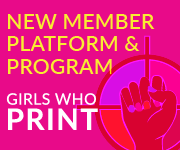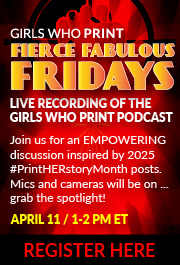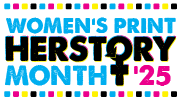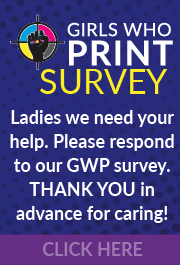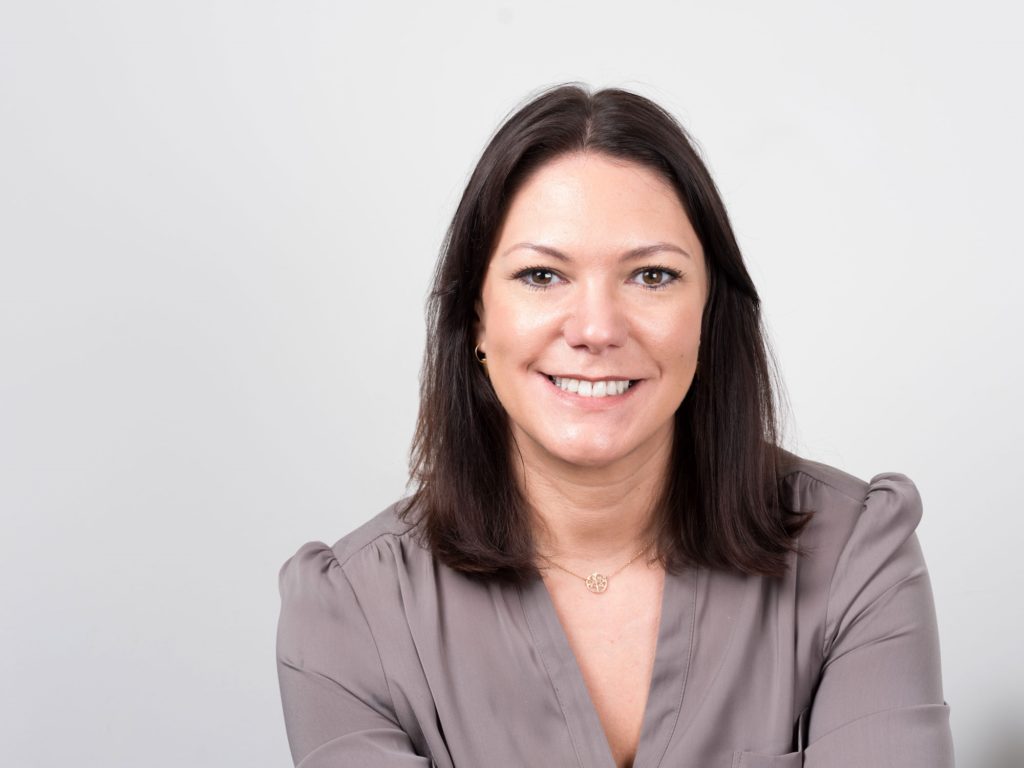
Name: Danielle Kinsella
Title: Marketing director
Company: Hamillroad Software Limited
Company URL: http://www.hamillroad.com/
LinkedIn Profile URL https://www.linkedin.com/in/daniellekinsella/
Did you choose print or did print choose you?
I have always loved print; as a child, I loved books and how you can get lost in the printed words of a story. As I grew older, I became aware of magazines. As a teenager, these magazines spoke to me about news and stories which were from around the world, but they were about girls who I could relate to; it opened endless possibilities of what might be possible.
At college, I studied media communication and production; the area I enjoyed the most was graphics. I remember a textual analysis project where we took magazine adverts and decoded the messages which the brand was trying to communicate, whether using words or pictures, sometimes it was the subtleness of the emotions communicated in the visual, which helped the message speak out the loudest.
I grew up as a young adult when the world wide web was in its infancy. The dot com boom was about to hit. I learned web design, coding HTML, downsampling images so that they were rasterized for the web, working to dial-up speeds of internet connectivity. The idea of having more than one browser tab open was unheard of!
When I began creating marketing material, this was my first real engagement with a printer. I didn’t know about supplying a ‘print-ready PDF’ with all the relevant marks on the page. Why would my web image look pixelated when printed? I need something with a ‘higher resolution’ – 300dpi. What is dpi, why when I change the color from RGB to CMYK does it look dull and why is Black ‘K’? All these questions! Fortunately for me, the printer was understanding (and patient) enough and educated me through this process.
I also remember the excitement of opening the cardboard box, which contained my printed leaflets and pausing for a moment as I took in my digitally created work reproduced in print. I still have that excitement today; there is something about the tactility and emotion of print, which is unlike any other medium.
Fast-forward to 2017, when I joined Hamillroad Software, learning about print and prepress, a dive into the deep end of print, first flexography, and more recently
lithographic printing. Back to the magazines and printed materials which I loved then and still read and love today.
Now the print industry has chosen me
How do you establish credibility with customers, colleagues, and bosses?
I believe that being authentic gives you credibility. Being kind, treating others as you would like to be treated, and keeping your ego in check helps you get along, not only in business but in life – be nice.
No one likes a know it all; no one likes a bully, so don’t be that person. A willingness to learn, take criticism, speak up when needed, address problems with a positive attitude.
I like to learn about the people I work with. If I’m engaging with a new customer, I do my research – what are they involved in, what news has released lately, but beyond the commercial side, we are all human beings.
I try to bring emotional intelligence to my work; understanding whether someone is an introvert or an extrovert, and finding a way to work with them on a level that gets the best from our collaboration.
Paying attention, listening, these are key attributes which often get overlooked, in the past being the loudest voice in the room was what got you noticed, but while you’re talking, you’re not listening. If I’m confident in a situation, I will happily talk about how our technology can help a business, but if I don’t know what problems they are trying to solve, I could miss the point completely.
If a question comes up and I don’t know the answer, I won’t try to answer, I let them know that it’s something I can’t answer right now, but I’ll ask someone who can, and I’ll get back to you.
Saying what you’ll do, and then doing it, goes a long way in helping establish credibility.
What advice can you offer regarding negotiating salary raises/ addressing fair pay issues?
Money is always a difficult question, asking for more of it, even harder. But that’s because, historically, we have been conditioned into thinking this.
In my experience, it has always been a taboo subject in the workplace. I would admire the way that my male colleagues approached pay reviews – they were confident, they would ask outright, whereas I would find myself with knots in my stomach, figuring out how to raise the subject, whether to avoid it completely, or accept whatever I was offered and don’t make a fuss about it.
Knowing your self-worth is key; being confident in what you bring to the table is vital. I’ve had experiences in the past where I have associated my self-worth to my salary- this is not always a true or fair representation.
If I was to say to anyone going into any industry, it’s to be confident in your abilities, know your worth, don’t let others try to chip away at your confidence. No one is perfect, we learn through our mistakes, and we grow. If you believe that you should be rewarded more money for the work that you do, ask. If you don’t ask, you won’t know. And if the person you ask says no, ask why not, and what you can do to achieve that pay rise?
I’ve been fortunate enough to not be in a situation where I’ve had an unfair pay issue in my career, however, if there was a clear indication that someone was not being paid fairly because of their sex, the color of their skin, religious beliefs etc., then you should speak to HR and raise a grievance.
There’s no excuse, we are in 2020, companies know this, and most are addressing it. Hopefully, soon this will not be a problem.
What advice did you receive early in your career that you wished you had followed?
I’m not sure that there’s anything in my career that I would have done differently.
Life is a journey, and we all walk our paths. We meet people along the way, some stay briefly but impart knowledge which helps you, others stay longer and sometimes walk some of the path with you.
Staying open to ideas and opinions, while also remaining true to yourself is important.
The lessons and advice which we learn may not seem significant at the time, but later in life, it may be that the piece of advice you were given as a twenty-something is now relevant.

